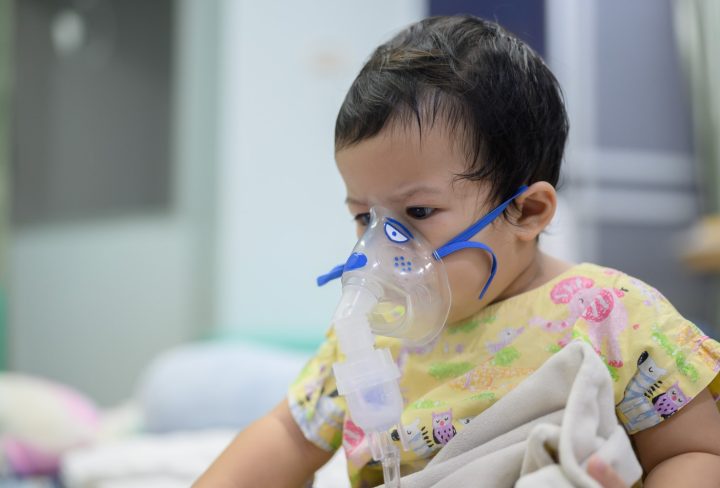Respiratory distress syndrome (RDS) is a breathing disorder which affects newborns, especially those who are born earlier than 6 weeks. The earlier or more prematurely a baby is born, the more likely the baby will develop RDS.
Newborns with milder symptoms recover in 3–4 days. Those who are very premature may take longer.
Symptoms of Neonatal Respiratory Distress Syndrome
- Fast breathing
- Noisy breathing
- Drop in blood pressure
- Retractions (a tugging in of the muscles between the ribs, under the ribcage, and at the neck) during breathing
- Cyanosis, bluish discoloration of lips, nail beds, and skin from lack of oxygen
Causes of Respiratory Distress Syndrome
- Sepsis: a serious and widespread infection of the bloodstream
- Inhalation of harmful substances: breathing high concentrations of smoke or chemical fumes
- Severe pneumonia: severe cases of pneumonia causes rds
- Head, chest, or other major injury
Diagnosis of Respiratory Distress Syndrome
Imaging
- Chest X-ray: reveals the parts of the lungs those are affected and how much of the lungs have fluid in them and whether the heart is enlarged or not
- Computerized tomography (CT) scan: provides detailed information about the structures within the heart and lungs.
Heart Tests
The symptoms of RDS are like those of certain heart problems, hence, to rule out the underlying cause your child’s doctor may recommend heart tests such as:
- Electrocardiogram: This painless test tracks the electrical activity in your heart. It involves attaching several wired sensors to your body.
- Echocardiogram: A sonogram of the heart, this test can reveal problems with the structures and the function of your heart.
Treatment:
The main goal of treating RDS include, improving the levels of oxygen:
- Supplemental oxygen: For milder symptoms or as a temporary measure, oxygen delivery helps to cope up
- Mechanical ventilation: A mechanical ventilator pushes air into your lungs and forces some of the fluid out of the air sacs.
Fluids:
Too much of fluid can increase fluid buildup in the lungs. Too little fluid can put a strain on the heart and other organs and lead to shock. Your child’s doctor will give appropriate amount of fluids
Medication:
People with RDS usually are given medication to:
- Prevent and manage the infections
- Relieve pain or discomfort
- Prevent blood clots in the lungs and legs
- Reduce gastric reflux
- Sedate

